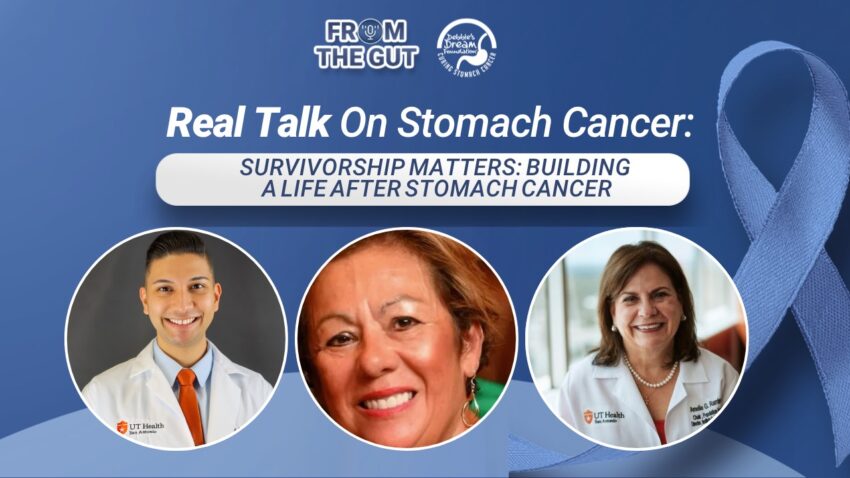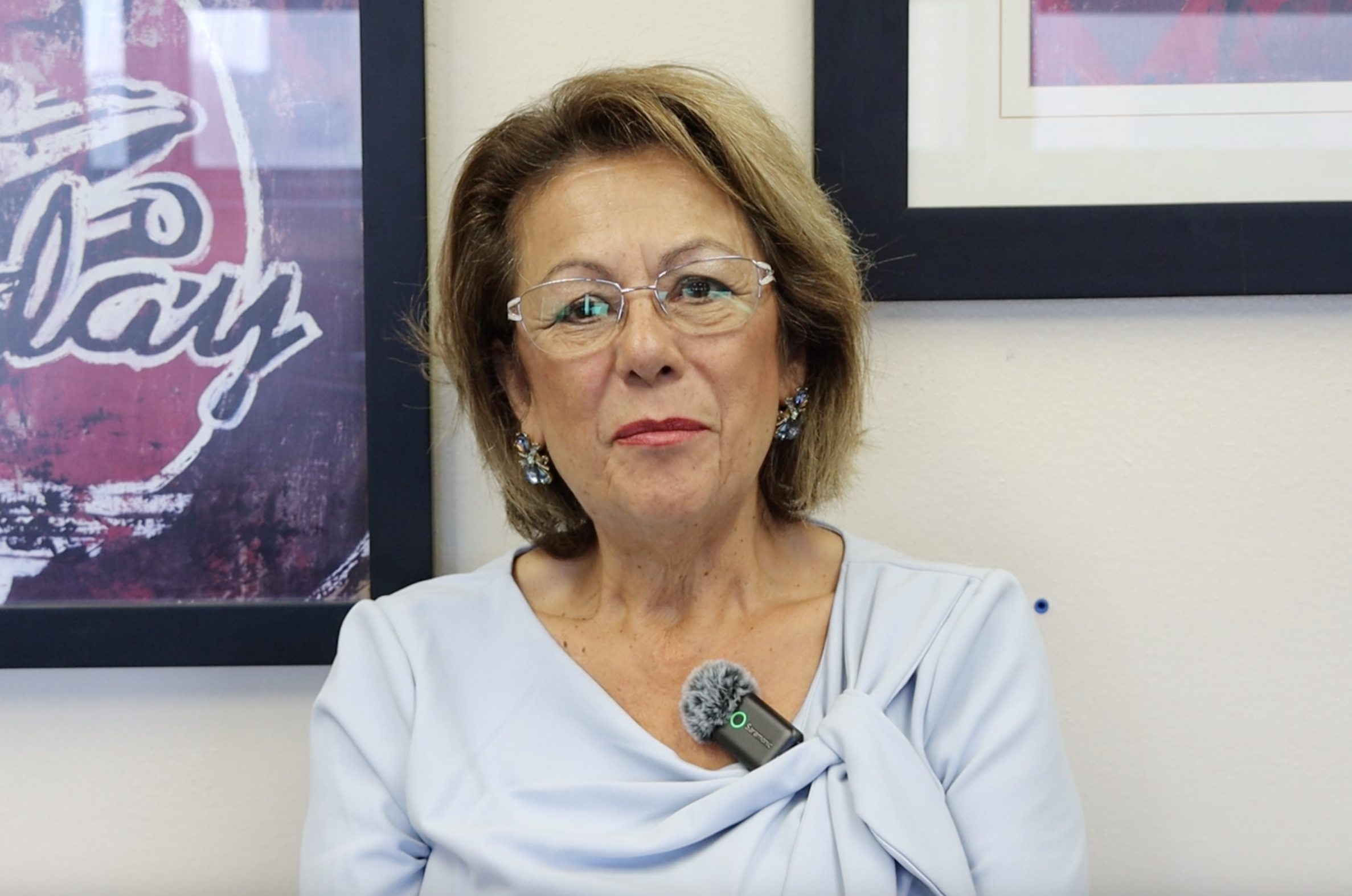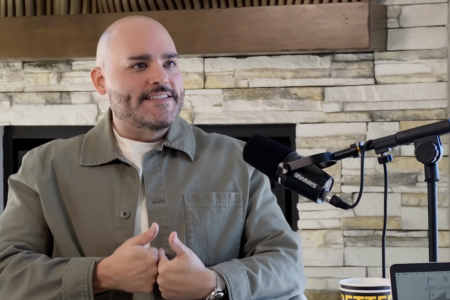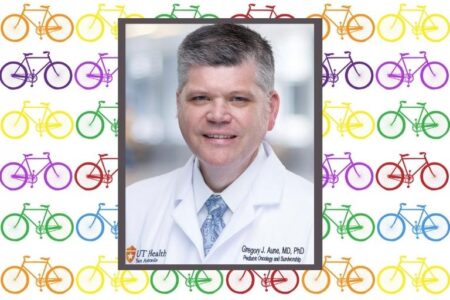
Share On Social!
Now comprising 20% of the US population, Latinos are among the fastest-growing populations in the country.
They are also afflicted with some of the highest rates of cancer, especially cancers with lower survival rates like stomach cancer.
In honor of Stomach Cancer Awareness Month, Dr. Amelie G. Ramirez, leader of Salud America! and a cancer health researcher at the Mays Cancer Center at UT Health San Antonio, and Dr. Derek Rodriguez, a research scientist at UT Health San Antonio, appeared on the Debbie’s Dream Foundation From the Gut podcast.
In the podcast’s fourth episode, the pair of cancer researchers focused on the Avanzando Caminos Hispanic/Latino Cancer Survivorship Cohort Study and the importance of creating a community of survivors.
They were joined by stomach cancer survivor and Debbie’s Dream Foundation board member Yolanda “Yoli” Barrera Day, who shared her survivorship story and opened up about her participation in the Avanzando Caminos study.
This is the second time the duo has appeared in a podcast highlighting the Avanzando Caminos study with a participant.
Avanzando Caminos
The Avanzando Caminos study, aims to improve the Latino cancer survivorship journey by interviewing survivors about their personal experience with cancer.
By examining the journeys of cancer survivors, the team is looking to unpack the behavioral, mental, biological, and other influences on post-cancer life.

In analyzing these factors, the study team hopes that they can identify strategies and interventions that may help ease the burden caused by these influences.
“The fact that the research this is being done is to help individuals that have had cancer figure out what to do next,” Yoli told Salud America! in a video testimonial interview. “We need help. We don’t have that in the community.”
The study focuses on people who identify as Hispanic or Latino, with participants spanning from European and Native American all the way to Afro Caribbean.
These individuals have long since been left out of clinical research studies, impacting the kind of care they receive and even their chances of survival.
“It’s essential to prioritize communities like these in clinical studies, to work towards improving their survivorship experience,” said Dr. Rodriguez, who also serves as program manager for the study. “[This is] the first of its kind study that looks at the overall post life of cancer survivors.”
The study focuses on the non-medical drivers of health, which are factors associated with where you live that impact your overall health or access to health care, such as delayed cancer screenings and more late-stage diagnoses.
“Not a lot has to do with your medical attributes. In fact, a lot of demographically what’s going on with individuals, especially in this Latino community, we don’t know much about,” Dr. Rodriguez explained. “The food that we eat, the place where we live, the interactions that we hold within communities, as far as education, medical assistance, it differs in this community and so not much is known about that.”
While much is unknown about why Latinos are more impacted by cancer, we do know that there is estimated to be an increase in certain cancer types in Latinos and that more needs to be done for Latinos with cancer, especially those living in South Texas.
Yoli’s Story
Yoli is one of hundreds of participants looking to help make a difference in the lives of cancer survivors in South Texas.
“There have been phenomenal individuals such as Yoli and others just coming forward and sharing their stories and that brings me just great joy and their willingness to speak up and serve as role models for us to share with others,” Dr. Ramirez said.
After experiencing extreme fatigue, Yoli was diagnosed with stomach cancer in 2021.

To treat the cancer, Yoli had to have her stomach removed, which left her gastrointestinal distress, making it difficult to eat certain foods and have proper bodily functions.
“You don’t really have time to even process what’s going on before it was all over, right?” she said. “You’re told … you don’t have a stomach, but you don’t have cancer, so it’s wonderful, and you’re overjoyed, but then you got to figure out how to deal with that, right? What does it mean to not have a stomach?”
However, she was resilient and rose above adversity to champion for the health and wellbeing of others like her through her work with the Debbie’s Dream Foundation.
As a board member of the Debbie’s Dream Foundation, Yoli has been responsible for organizing fundraising events to raise money for stomach cancer research, including a 5K run and 1 mile walk.
Now she’s sharing her story with people living in South Texas and beyond.
The cancer survivor has appeared in several local newscasts to talk about the study and her cancer journey.
She also shares her story with the Avanzando Caminos study and encouraging others to share theirs with the study as well.
“You need to join [the study]. You need to help. All you do is you talk to these folks, you answer a bunch of questions. I think once in a while we’ve got to give some blood. I mean, that’s it. That’s the extent of it,” Yoli said of her experience with the study.
“Knowing that I have a group of people looking at my problems and looking for solutions that has helped my survivorship considerably, and just knowing that I may not have somewhere to go to today, a resource today, or people like me don’t have it, but we will, because of this study.”
Share Your Cancer Story with the Avanzando Caminos Study
The Avanzando Caminos research study at UT Health San Antonio is looking to enroll 1,500 Hispanic/Latino cancer survivors in South Texas.
Participants must have completed primary cancer treatment for breast, lung, liver, stomach, colorectal, kidney, prostate, and uterine cervical cancers in the last 10 years.
Recently, the study announced it would now be enrolling participants who have completed treatment for bladder, melanoma, ovarian, thyroid, and lymphoma cancers.
The study is comprised of seven study visits over five years, which consists of assessment interviews, and some blood draws.
Volunteers are eligible to receive $50 per visit.
To inquire about volunteering for Avanzando Caminos, please contact a member of the study team at the Institute for Health Promotion Research at UT Health San Antonio at 210-562-6514 or email caminos@uthscsa.edu.
You can also visit the Avanzando Caminos website in English or Spanish for more information or fill out a short eligibility survey and a member of the study team will be in touch.
Join the Avanzando Caminos study in English or Spanish.
By The Numbers
1
out of 10
Pedestrians survive when hit by a car at 40 MPH



